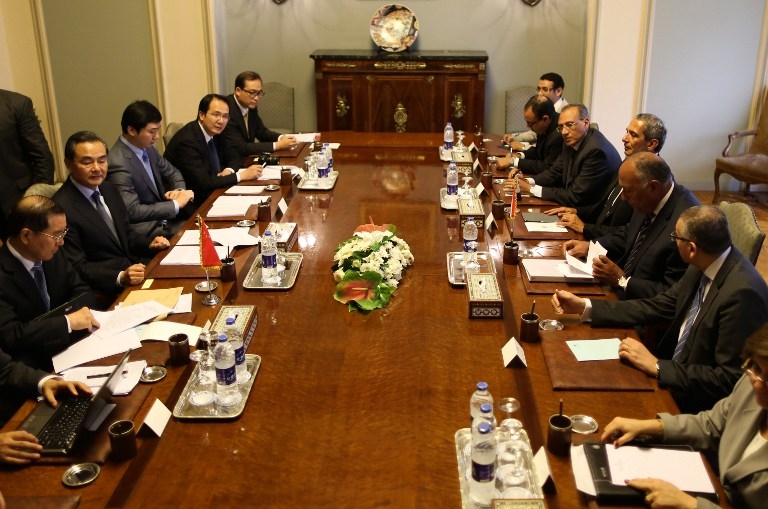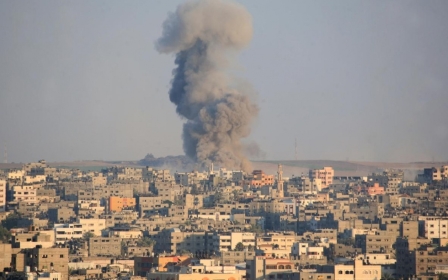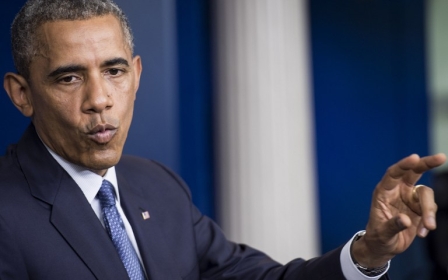Hamas says Israel undermining Cairo truce talks

Hamas accused Israel Monday of trying to scuttle truce talks in Cairo, saying the Jewish state refused to send negotiators to avoid questioning over the "escalating massacres" in Gaza.
A Palestinian delegation, which includes members of Gaza's Hamas rulers and President Mahmud Abbas's Palestinian Authority, agreed on Sunday joint demands for a truce with Israel, including an end to the Gaza blockade.
Members of the delegation handed the demands on Monday to Egyptian intelligence chief Mohamed Farid Tohamy, the Egyptian state news agency MENA reported.
Egypt is expected to relay those demands to the Israelis.
Israel refused sending negotiators to the Cairo truce talks, accusing Hamas of breaching a 72-hour humanitarian truce hours after it began on Friday.
Hamas said on Monday it was Israel which breached that truce and was now trying to foil the Cairo talks.
"The Israeli side is trying to foil the meeting in Cairo by violating the (72-hour) truce," said senior Hamas official, and member of the Palestinian delegation, Ezzat al-Rishq.
He told reporters Israel is staying away from the talks "because it does not want to bear responsibility for the massacres it has committed" in Gaza.
"Whether the delegation comes or not... it will not run away from its responsibilities. The Palestinian people will pursue them at the ICC (International Criminal Court)."
The Palestinian demands agreed on Sunday include "a ceasefire; Israeli troop withdrawal from Gaza; the end of the siege of Gaza and opening its border crossings".
They have also demanded fishing rights up to 12 nautical miles off Gaza's coast and the release of Palestinian prisoners demanded by Hamas and Abbas.
"There is a consensus among all the Palestinian factions that Gaza can't return to a blockade... it is a natural right of the people of Gaza to live (freely) as any other people in the world," Rishq said.
He said Egypt will "try to press Israel" to accept these demands and that eventually Israel "may change its position and send a delegation at the last moment."
Azzam al-Ahmed, who is heading the Palestinian delegation, also expressed hope that Israel may still send a team to Cairo.
This could help "Egypt perform its role in halting the (Israeli) aggression and achieving the Palestinian demands through negotiations it is conducting with the two sides," he told reporters.
Meanwhile, Palestinian sources in Cairo told the Times of Israel on Monday that the United States and Qatar have again renewed their attempts to reach an understanding on a ceasefire in Gaza, even as Palestinian factions meet Egyptian officials in Cairo to forge their own proposal.
The Palestinian sources suggested that the US-Qatari initiative slows and undermines the Egyptian efforts.
The sources said that the Egyptian effort is focused on convincing Hamas to first stop fighting on the basis of the understandings obtained after Pillar of Defense in 2012, then moving to a broader ceasefire which would include the withdrawal of Israel from Gaza, an easing of restrictions at the border crossings and facilitating the rehabilitation of Gaza. Then, at a later stage, the sides would discuss further demands such as the construction of a port and the opening of the Rafah crossing.
Last week both Israel and the Palestinian Authority rejected a ceasefire plan proposed by US Secretary of State John Kerry in negotiations with Turkey and Qatar. The initiative reportedly gave US assurances on key Hamas demands, including the lifting of the Israeli blockade on Gaza and the withdrawal of IDF forces before the complete destruction of a network of Hamas tunnels.
New MEE newsletter: Jerusalem Dispatch
Sign up to get the latest insights and analysis on Israel-Palestine, alongside Turkey Unpacked and other MEE newsletters
Middle East Eye delivers independent and unrivalled coverage and analysis of the Middle East, North Africa and beyond. To learn more about republishing this content and the associated fees, please fill out this form. More about MEE can be found here.




